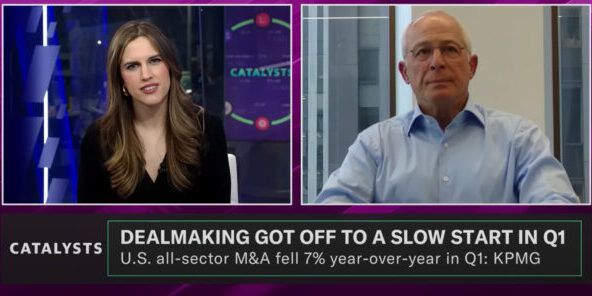Navigating Financing, Growth, and Restructuring in Today’s Challenging Environment
By Vinod Chandiramani, Head of Capital Advisory, Solomon Partners
In the current economic climate, companies face numerous challenges that require innovative solutions to maintain liquidity, grow, and manage capital structure dynamics. It is essential to develop and implement a prudent game plan rather than freezing and hoping for the markets to revert to yesterday’s norms. As our CEO Marc Cooper says, “We support our clients in all markets, including the toughest ones. It’s in the tough markets where our experience differentiates us from our competitors. In easy times and tough times, our goal is to help companies maximize total shareholder value.”
Today, companies need to evaluate the economic impacts of legislation, tariffs, potential changes in consumer demand, margin compression, and changes in return on capital invested (e.g., working capital, capital investment). They should conduct scenario analysis and consider ways to bolster liquidity and capital access to maximize a company’s ability to proactively implement strategic plans.
Private Credit Markets: A Viable Option
For companies seeking financing, the syndicated markets are muted while the private credit markets are wide open. Private markets are offering certainty, as well as a compelling economic alternative to where syndicated deals may price when that market opens. During the initial COVID period, upfront fees on syndicated leverage loans blew out ~300 bps and spreads widened ~150 bps, which effectively raised leverage loan annualized cost by 225 to 250 bps and presented an incremental opportunity for private credit investors to take share. If a similar dynamic unfolds today, private credit will likely be the option of choice for refinancing and acquisition financing needs.
Hybrid Capital: Bridging the Gap
Hybrid capital is generally being used to bridge the gap between buyers and sellers on M&A trades, facilitate growth or shareholder distributions in founder-owned businesses (in lieu of minority equity sales), and reduce the cash cost of debt owing to the increase in interest rates over the last few years. We are seeing robust activity in this asset class and have been actively educating clients on the utility of this solution.
While not a significant component of the liability management (“LM”) market, we believe Hybrid Capital may play a role in implementing LM transactions on a go-forward basis. Previously, sponsors have avoided raising dilutive capital to facilitate LM deals. To the extent lenders start increasing paydown requirements, or if earnings power declines or is uncertain, we believe there will be a role for this pocket of capital for a select group of company profiles.
Dividend Recaps and DPI-Driven Deals
The market for dividend recaps was vibrant before the tariff situation spurred volatility. For companies less impacted by tariffs and where the long-term structural thesis is intact, the private credit or hybrid capital markets remain open to facilitate shareholder distributions, provided issuers have more room to run from an earnings perspective and/or the owners have skin in the game.
Outlook on Restructuring Activity
We have not seen an uptick in restructuring activity year to date. However, we anticipate activity will rise in certain sectors if consumer spending declines, the tariff “pause” snaps back, and China-specific tariffs remain at their May 2025 levels. Additionally, if clients are unable to relocate supply-chain capacity, restructuring may become necessary. Larger, well-capitalized companies that can afford to pay more for regional capacity in new production markets are likely to have an advantage in securing it as region-specific capacity is depleted and new capacity has yet to come online.
Keep in Mind: Extended Transaction Timelines
Many options remain for companies to obtain financing, grow, and recapitalize in today’s uncertain environment. However, management teams need to be mindful that the process of completing transactions has been extended for issuers impacted by incremental upfront preparation and incremental diligence once in process. Solomon can provide guidance on key strategies to navigate these uncertain times and help companies explore financing opportunities, tap private credit markets, utilize hybrid capital, create bespoke solutions, and implement liability management strategies.





